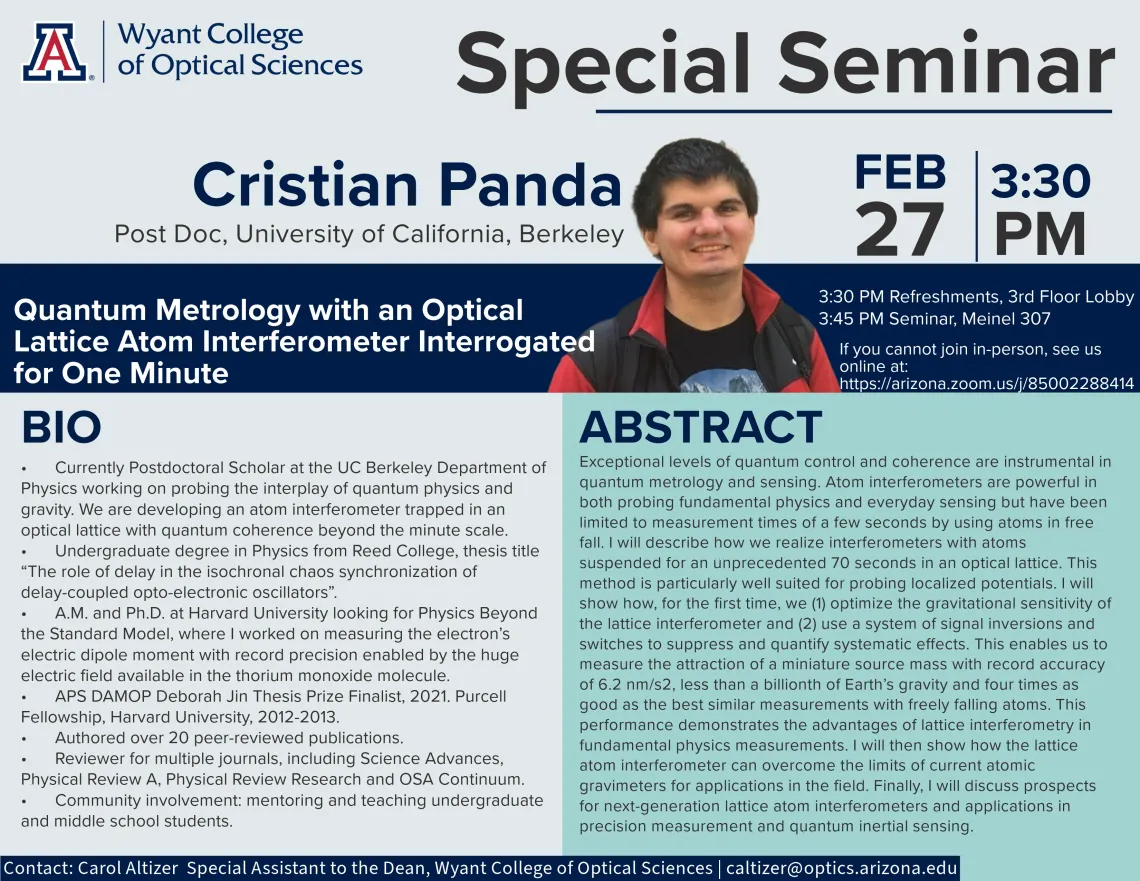
When
Where
Title
Quantum Metrology with an Optical Lattice Atom Interferometer Interrogated for One Minute
Abstract
Exceptional levels of quantum control and coherence are instrumental in quantum metrology and sensing. Atom interferometers are powerful in both probing fundamental physics and everyday sensing but have been limited to measurement times of a few seconds by using atoms in free fall. I will describe how we realize interferometers with atoms suspended for an unprecedented 70 seconds in an optical lattice. This method is particularly well suited for probing localized potentials. I will show how, for the first time, we (1) optimize the gravitational sensitivity of the lattice interferometer and (2) use a system of signal inversions and switches to suppress and quantify systematic effects. This enables us to measure the attraction of a miniature source mass with record accuracy of 6.2 nm/s2, less than a billionth of Earth’s gravity and four times as good as the best similar measurements with freely falling atoms. This performance demonstrates the advantages of lattice interferometry in fundamental physics measurements. I will then show how the lattice atom interferometer can overcome the limits of current atomic gravimeters for applications in the field. Finally, I will discuss prospects for next-generation lattice atom interferometers and applications in precision measurement and quantum inertial sensing.
Bio
Currently Postdoctoral Scholar at the UC Berkeley Department of Physics working on probing the interplay of quantum physics and gravity. We are developing an atom interferometer trapped in an optical lattice with quantum coherence beyond the minute scale.
Undergraduate degree in Physics from Reed College, thesis title “The role of delay in the isochronal chaos synchronization of delay-coupled opto-electronic oscillators”.
A.M. and Ph.D. at Harvard University looking for Physics Beyond the Standard Model, where I worked on measuring the electron’s electric dipole moment with record precision enabled by the huge electric field available in the thorium monoxide molecule.
APS DAMOP Deborah Jin Thesis Prize Finalist, 2021. Purcell Fellowship, Harvard University, 2012-2013.
Authored over 20 peer-reviewed publications.
Reviewer for multiple journals, including Science Advances, Physical Review A, Physical Review Research and OSA Continuum.
Community involvement: mentoring and teaching undergraduate and middle school students.
